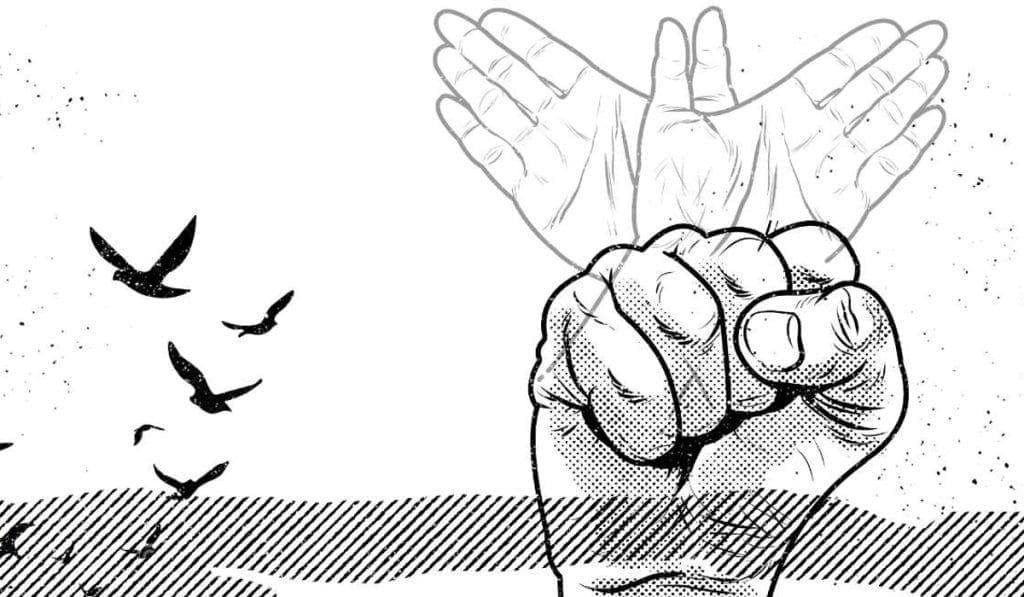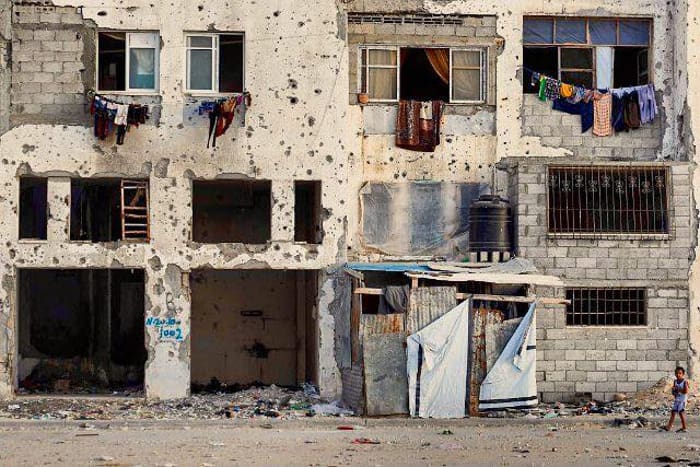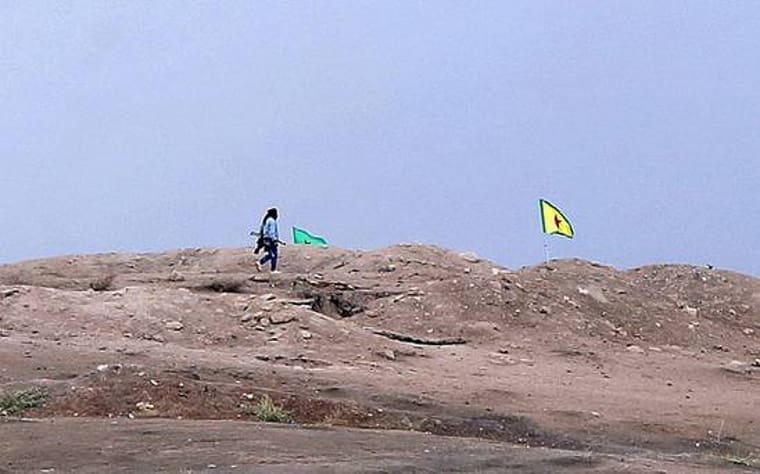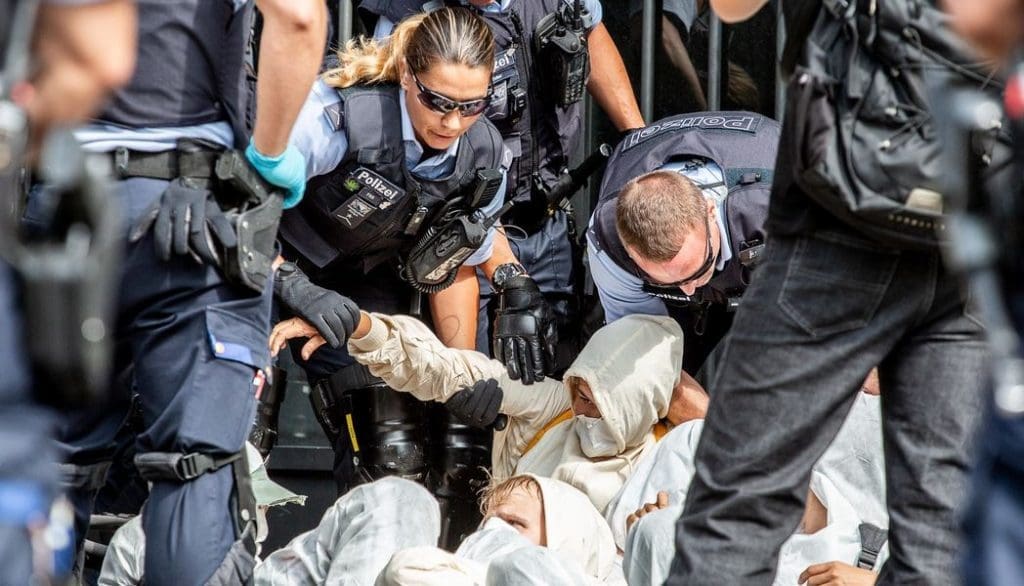AntiNote: Minneapolis-based Care Is Defense dropped a fun instructional pamphlet this week, hoping to assist local movements and autonomous communities in Minnesota and elsewhere with their humble and fierce efforts to prefigure and fight for a future free of all oppression.
This post is only a very approximate reproduction of the zine in its originally intended form. PDFs for reading and printing are linked at top and bottom! Save, print, and share hand-by-hand! Talk about it and use it in groups!
Apo’s Guide to Tekmîllin’ Like a Villain
adapted by Care Is Defense (Minneapolis)
Illustrations by Anthony Moss
PDF originals (read | print)
27 March 2021
Disclaimer: This short guide is condensed from two articles originally published at the Komun Academy website — “Tekmîl: Creating a Culture of Constructive Criticism” by Philip Argeș O’Keeffe (2018) and “Struggling Against the System in Ourselves: Criticism and Self-Criticism” (2020), which excerpts interviews with women in the Kurdish liberation movement.
The adapters of this document do not have direct experience with Rojava’s tekmîl culture. Inspired in part by the array of illuminating materials the Rojava revolution and its supporters have produced over the years, this guide is also a reflection on our own experiments using tekmîl where we live, work, and resist–in the heart of Turtle Island, thousands of miles from Anatolia. We have found the practice to be a simple and welcome tool for communicating with our fellows – hevalên – in a variety of contexts, and we are eager to see its further replication and proliferation through our movements and through society.
What is tekmîl?
Tekmîl roughly translates to “report.” On its face it sounds fairly mundane. Another English term for the process attempts to capture more of its weight and depth: revolutionary constructive criticism.
Tekmîl sessions are typically used as debriefs for military operations, training sessions, civil projects, or simple daily tasks. These sessions can be called at any time by anyone in either the civil or military structures in Rojava. These sessions serve to infuse a constructive democratic process into Rojava’s civil society, from household chore systems to military operations. Tekmîl allows for children to offer critiques to their parents just as much as it does for young organizers in Rojava’s self-governance structures to question the authority of their so-called superiors. It also allows for elders to offer honest critiques to the communities they have been entrusted to advise.
Hevaltî is another good word to know
Tekmîl is based on the foundations of hevaltî. Hevaltî roughly translates to friendship or comradeship – fellowship, perhaps. It is the idea that we work together, we help each other, we share everything, from the tangible to the intangible, not because we expect something in return, but simply because we are comrades; because we are humans living, struggling, and experiencing life together; because we share the same purpose of trying to advance the collective wellbeing. It is the idea that we can trust and believe in each other and that we need not fear ulterior intention.
By establishing a culture of hevaltî as the basis of revolutionary life, we create an alternative environment and society conducive to constructive criticism and the means by which, together, we improve ourselves and the collective. This is critical to tekmîl, because it allows us to respectfully give criticisms and, likewise, to accept, absorb, and address criticisms in an efficient manner, free of ego, fear, or mistrust. This format of revolutionary constructive criticism attempts to mitigate the fear of conflict that so often plagues liberation movements. We are invited to offer and receive honest feedback, to improve ourselves and each other, on the premise that critique comes from a place of care and comradeship, with the goal of personal and collective liberation. This also keeps us accountable to our principles, asking us to offer criticism for the sake of our common struggle rather than out of private or selfish animus.
Anatomy of a tekmîl session
Facilitation:
We recommend a co-facilitation system, especially when this is an online meeting, and/or when there are many participants. Facilitators can share responsibility around note-taking, or a separate note-taker can be designated. They can also share responsibility to keep track of hand-raising and keeping group dynamics in check.
Session Structure:
To start (when applicable), participants introduce themselves with names, pronouns, and a brief description of their role in the subject of the tekmîl.
Next, each participant has the opportunity to give critiques and self-critiques without any response from any of the other participants. Facilitators should work to make sure everyone takes their turn to speak (go in a circle, for example) and that there be an equal amount of time offered for each participant to offer their critiques. Facilitators should also encourage participants to use this time to mention points for further discussion amongst the group in the next section of the meeting.
The same critique of a participant should not be repeated during the tekmîl once it has already been given. This helps avoid the perception of a participant being singled out and attacked by the group, and fosters a more efficient means by which each participant can contribute. It also encourages participants to listen to one another more intently, rather than focusing solely on making their own points. Futhermore, it alleviates the fear of conflict that so often can prevent a person from expressing themselves.
Facilitators are encouraged to step in if the same critique is being made of the same participant more than once to remind everyone that this point has been made and heard. It is worth noting that the self-critique element of this system allows for participants to share how they are already aware of their own behavior and are willing to work on adapting and growing as needed. Self-critiques should be counted in the consideration for whether or not a critique has already been made of an individual’s behavior.
This system is a means of accountability
If participants can trust that critiques will be given and heard with humility, care, and camaraderie, we are much more likely to foster a culture of trust and accountability to our actions. If a critique is raised by one participant, and others agree that it warrants further discussion, that is a good opportunity to add points to the agenda for the next section of the tekmîl.
Finally, the tekmîl will close with the opportunity for each of the participants to make suggestions for improvements, projects, etc.
This part of the tekmîl can take whatever form fits the needs of the group. In certain situations, it may be appropriate to use the same format as the previous section, where once again all participants go around and share thoughts one by one about next steps. The session might close after that with the invitation for participants to linger and arrange for further discussion on topics of their interest.
In other situations, this might be where facilitators shift the discussion style to a hand-raising/stack-taking method, or, in smaller groups, a less formal conversation style, structured by specific points of discussion that were raised in the circle.
Tekmîl is a kernel of greater collective autonomy and self-organization
In the context of the Kurdish liberation movement where the practice originates, tekmîl conversations are the mycological strands that make up and feed into a greater democratic collective organism spanning regions. These short meetings, usually held daily, are where difficulties in everyday life or critiques and self-critiques regarding an immediate situation are discussed. Then there are less frequent regular meetings, at tempos of one week, one month, or six months depending on scale, where topics are discussed by more people in more depth.
Another structure is formed by the platforms at congresses or after educational units, where each heval reads out their report individually in front of the assembly, in which the person analyzes and self-critically reflects – on the evaluation and accomplishment of the work and the responsibility that one had taken on, what was understood by the lessons, where there were developments or standstills, on the evaluation of concrete mistakes in everyday life and in the struggle, the relationship to the gender question, and to what extent the heval internalized or practiced certain characteristics of the oppressive system.
Transforming everything starts with you, heval
Personal development is understood by practitioners of tekmîl as a process that must take place within the collective struggle for liberation. The point is to question and understand mechanisms of domination, for example concerning the socialization of women, the entrenchment of specific class and colonial characteristics, and the patriarchal attitudes of men. Through the daily practice of criticism and self-criticism, analyzing oppressive behaviors (and their source) becomes normalized, allowing for hevalên to take responsibility for the personal growth needed to liberate themselves from their socialization. With the tekmîl system, we can foster a culture of collective care through a critical lens. Rather than taking criticism to be a harsh character judgment or a weapon to cast one another aside (i.e. “canceling”), hevalên welcome critical reflections as an essential way to mutually support one another in their personal liberation from the ways that oppressive systems live within each of us. Fighting against the system of domination and the effects of this system in a personal as well as collective process is simply a part of life and struggle.
As the Komun Academy puts it: Freedom is only possible in a liberated community; free individuals must be developed to lead the struggle. Revolution cannot be led by people confined to traditional ideas around womanhood and manhood. In this way, tekmîl is an immediate, concrete practice that we can take up together within the existential struggles we are all locked in, whether we like it or not, against patriarchy, racism, capitalism, colonialism, ecocide, and extermination. We must grapple with these things ourselves consistently in our own private lives and intimate spaces if we hope to transform society and the world.





